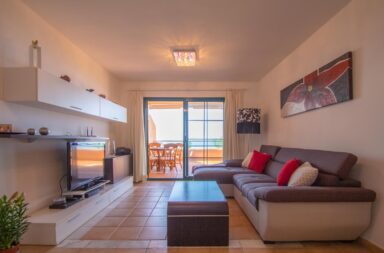Most of us if not all at some point of our lives are faced with making property refurbishments, and especially so when a new property has been just purchased and need our stamp on it, or it is time to modernise your home. When it comes to properties in Spain, many expat owners are unfortunately not aware that any such building works require a permit, failing to obtain which, can lead to substantial fines, work interruptions and even demolition orders.
The responsibility to obtain a building licence in Spain lies with the property owner and not with the building company performing the works, so it is always important to inform yourself and initiate the process well in advance as like every piece of Spanish paperwork it requires time and patience.
Building licences for home improvements in Spain are obtained from the local Town Hall and come in two main forms:
– Minor Works Licence or “obra menor” which covers all minor refurbishments such as refitting your bathroom or kitchen, retiling, painting and any other small works which do not include any structural changes. Most of the usual home improvements would be covered by this type of licence
– Major Works Licence or “obra mayor” which covers more substantial works and those affecting structural nature such as property extensions, remodelling of property layout, building a swimming pool.
Each type of building licence has own requirements and list of documents to be submitted and it is paramount to make specific enquiries in the relevant Town Hall, as like with each paperwork procedure in Spain, the requirements may vary from one municipality to another. Having dealt with several building licenses in the province of Alicante, . From application forms to permit types and sub-types, accompanying documents and response times the procedure varies greatly between different municipalities. While in Altea some building permits can be granted immediately, in Dénia it can take up to four weeks to receive one.
The list of documents for the “obra menor” building permit would normally include the filled in application form, a detailed list of works including the budget and costings, paid municipal fees which are calculated as a % of the total budget, title deed or last IBI receipt of the property and in some cases photographs of the property. The more substantial “obra mayor” permit application requires extended documentation including architectural plans and engineering certificates.
Once applied the documentation is reviewed by the Council engineering department who may contact the applicant in case of questions or to request additional documentation. Once issued the building licence is usually valid for the works to be carried out within the period of 12 months.
It is recommendable that any structural changes to the property like extensions or building a swimming pool are properly registered on the deeds, and the building permit will act as proof of the performed developments.
Please remember that some alterations may also require a permission from the Community of Owners if you have one. Relevant requirements can be checked in the Community Regulations document.
In conclusion, if you are planning any improvements or refurbishment in your Spanish property, we would always advise to check the specific building permit requirements with your local Town Hall and plan well in advance to allow enough time to obtain the licence. It may not be easy if this is your holiday property or in case you do not speak the language, in which case the easiest would be to involve the services of professionals like Coast Law Firm International Lawyers.
We would be happy to advise on the procedure, help collect the document package and represent you at your local Town Hall applying for the relevant building permit.


